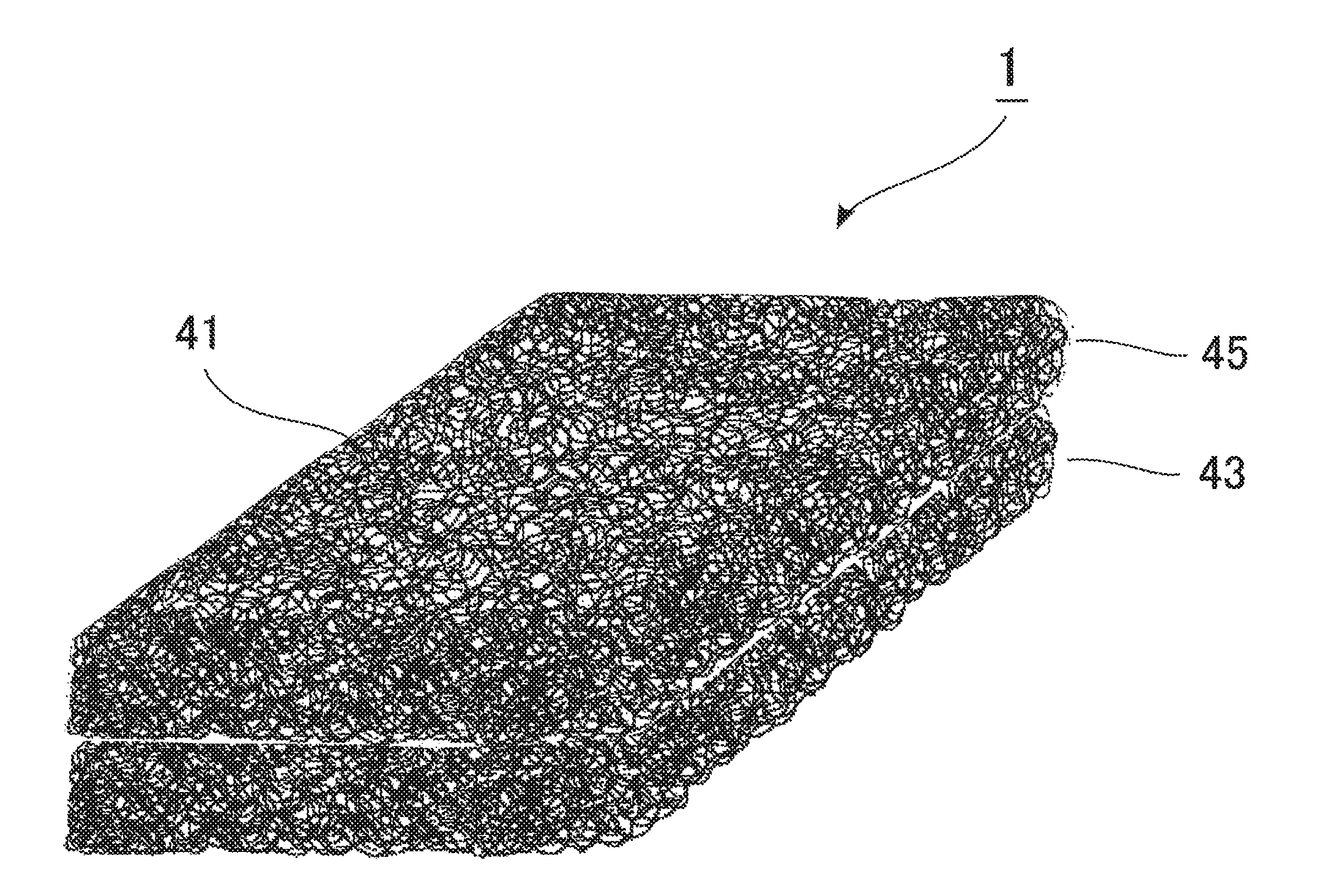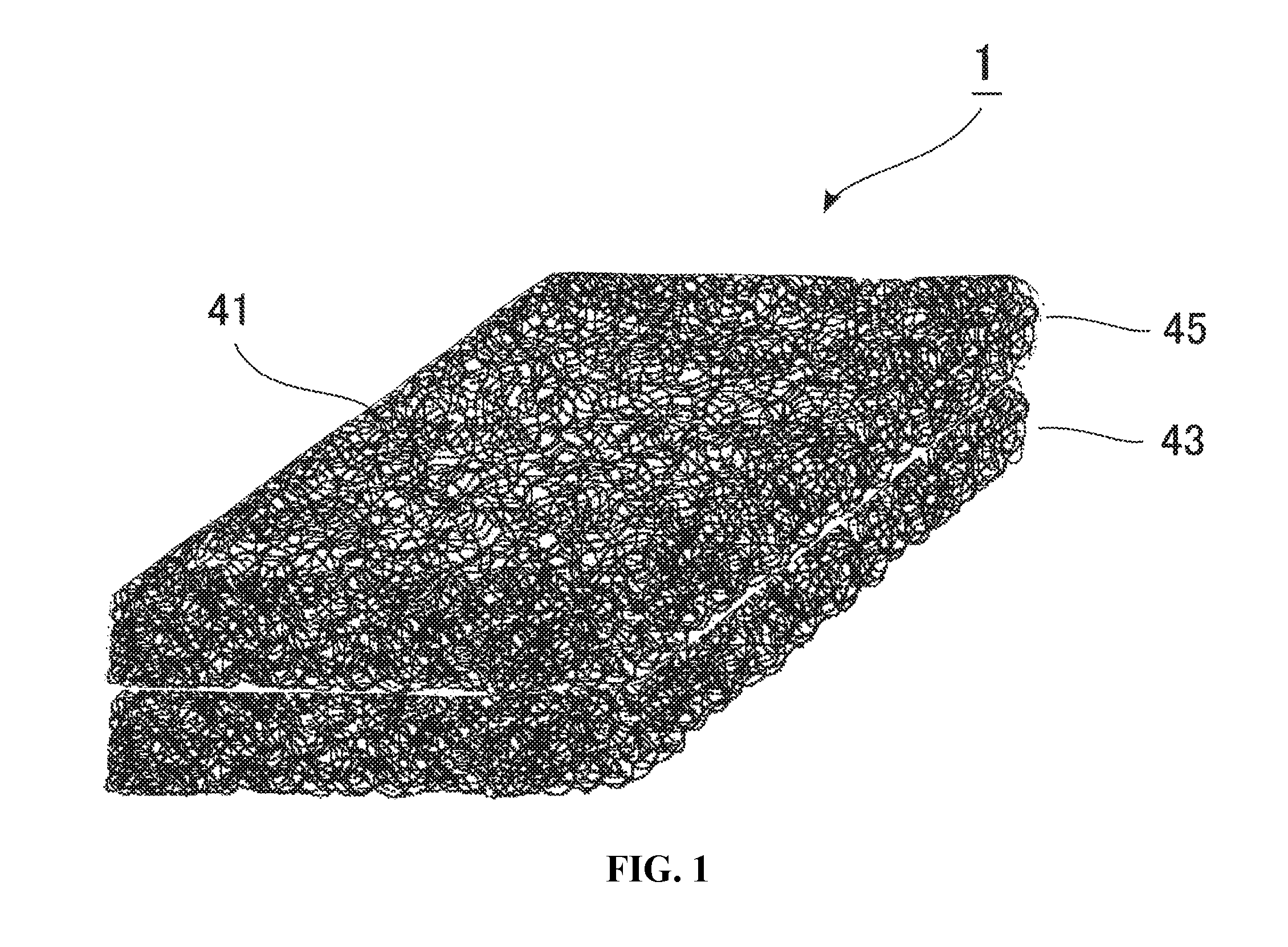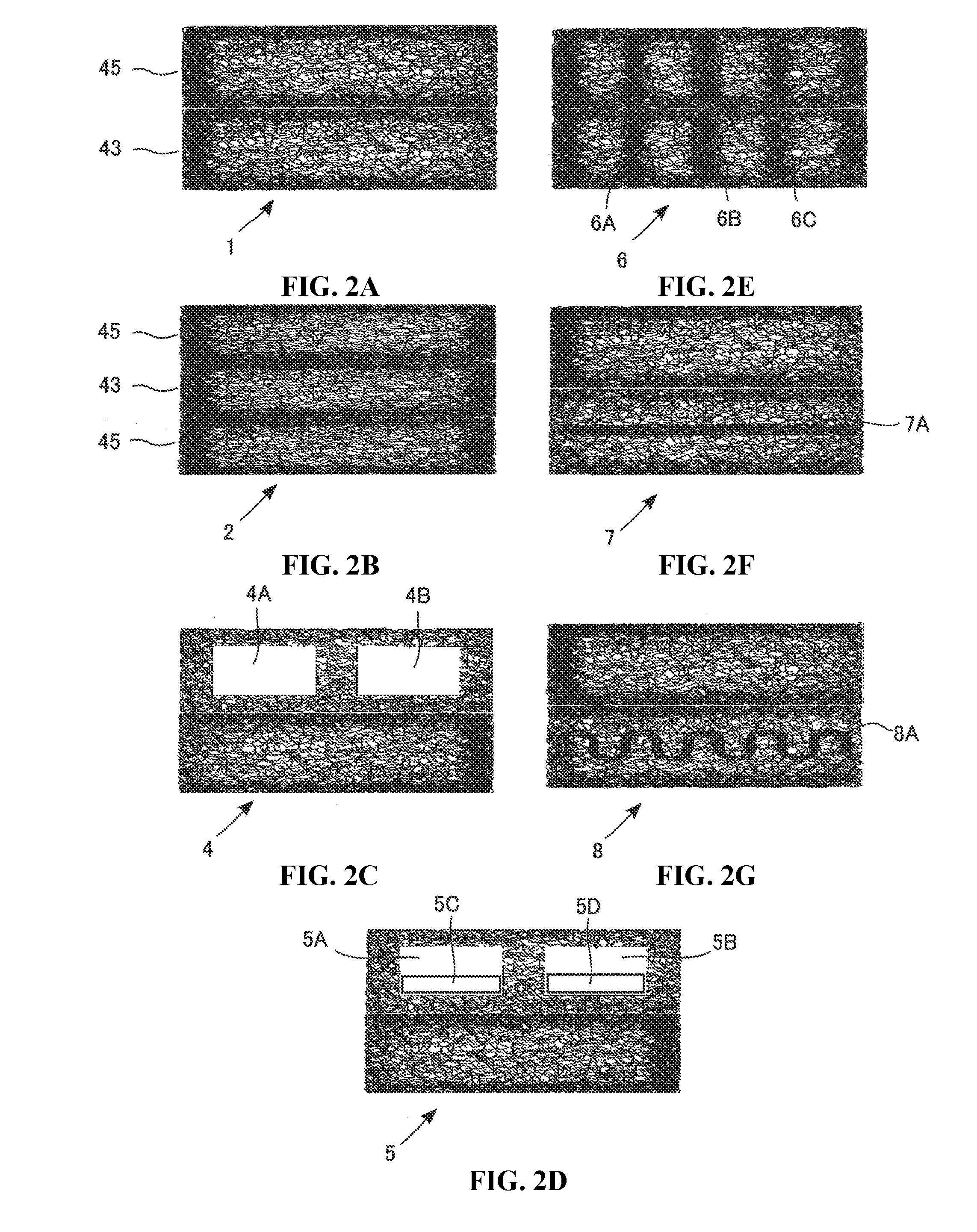Core material for cushion, and cushion
a cushion and core material technology, applied in the field of core materials for cushions, can solve the problems of not teaching concrete examples of materials, not taking into account lightness and air permeability, and the single three-dimensional net-like structure satisfies all these physical properties, and achieves the effects of convenient handling, sufficient heat resistance, and light weigh
- Summary
- Abstract
- Description
- Claims
- Application Information
AI Technical Summary
Benefits of technology
Problems solved by technology
Method used
Image
Examples
example 1
[0215]Example 1 was an example of the layer 43. The conditions employed were as follows: the screw diameter of an extrusion machine was 65 mm; the temperature of a die was 205° C.; the die had the width of 890 mm and the thickness of 75 mm; the hole pitch was 10 mm; the nozzle hole diameter was 1.6 mm; and the air gap (distance between the lower surface of the nozzle and the water level) was 67 mm. Hexane, hexene and ethylene as main raw materials were polymerized by a known method using a metallocene compound as the catalyst. An obtained ethylene / α-olefin copolymer had the melt viscosity (Pa·s) of 1.05 at the shear rate of 24.3 sec−1, 1.12 at the shear rate of 60.8 sec−1, 1.15 at the shear rate of 121.6 sec−1, 1.18 at the shear rate of 243.2 sec−1, 1.23 at the shear rate of 608.0 sec−1 and 1.26 at the shear rate of 1216 sec−1, the MFR of 12 g / 10 min and the density of 0.90 g / cm3. Filaments of the ethylene / α-olefin copolymer were ejected downward from a nozzle at the extrusion rate ...
example 2
[0216]Example 2 was another example of the layer 43. The conditions employed were as follows: the screw diameter of an extrusion machine was 40 mm; the temperature of a die was 190° C.; the die had the width of 500 mm and the thickness of 25 mm; the hole pitch was 10 mm; the nozzle hole diameter was 1.6 mm; and the air gap (distance between the lower surface of the nozzle and the water level) was 38 mm. Filaments of an ethylene / α-olefin copolymer (produced from the same raw materials as those of Example 1) and polyethylene were ejected downward from a nozzle at the extrusion rate of 13 kg / h at the melt temperature of 160° C. The lower ends of chutes were placed 36 mm below the nozzle surface and were submerged in water. A pair of stainless steel haul-off conveyors of 55 cm in width were placed parallel to each other across an opening width of 23 mm to be arranged partly above the water surface. The ejected filaments in the molten state were solidified on the chutes with supply of wa...
example 3
[0217]Example 3 was an example of the layer 45. The conditions employed were as follows: the screw diameter of an extrusion machine was 65 mm; the temperature of a die was 217° C.; the die had the width of 900 mm and the thickness of 30 mm; the hole pitch was 10 mm; the nozzle hole diameter was 1 mm; and the air gap (distance between the lower surface of the nozzle and the water level) was 69 mm. A thermoplastic elastomer (Hytrel (registered trademark)) had the melt viscosity (Pa·s) of 1.26 at the shear rate of 60.8 sec−1, 1.28 at the shear rate of 121.6 sec−1, 1.30 at the shear rate of 243.2 sec−1, 1.30 at the shear rate of 608.0 sec−1 and 1.33 at the shear rate of 1216 sec−1, the MFR of 14 g / 10 min and the density of 1.08 g / cm3. Filaments of the thermoplastic elastomer were ejected downward from a nozzle at the extrusion rate of 27.5 kg / h at the melt temperature of 195° C. The lower ends of chutes were placed 69 mm below the nozzle surface and were submerged in water. A pair of st...
PUM
| Property | Measurement | Unit |
|---|---|---|
| temperature | aaaaa | aaaaa |
| temperature | aaaaa | aaaaa |
| thickness | aaaaa | aaaaa |
Abstract
Description
Claims
Application Information
 Login to View More
Login to View More - R&D
- Intellectual Property
- Life Sciences
- Materials
- Tech Scout
- Unparalleled Data Quality
- Higher Quality Content
- 60% Fewer Hallucinations
Browse by: Latest US Patents, China's latest patents, Technical Efficacy Thesaurus, Application Domain, Technology Topic, Popular Technical Reports.
© 2025 PatSnap. All rights reserved.Legal|Privacy policy|Modern Slavery Act Transparency Statement|Sitemap|About US| Contact US: help@patsnap.com



